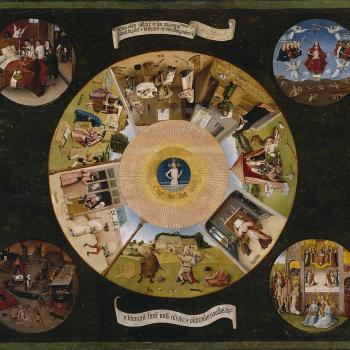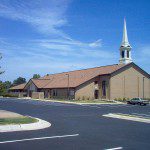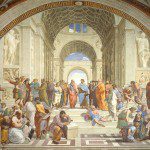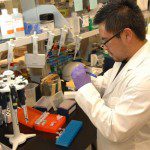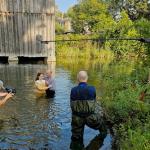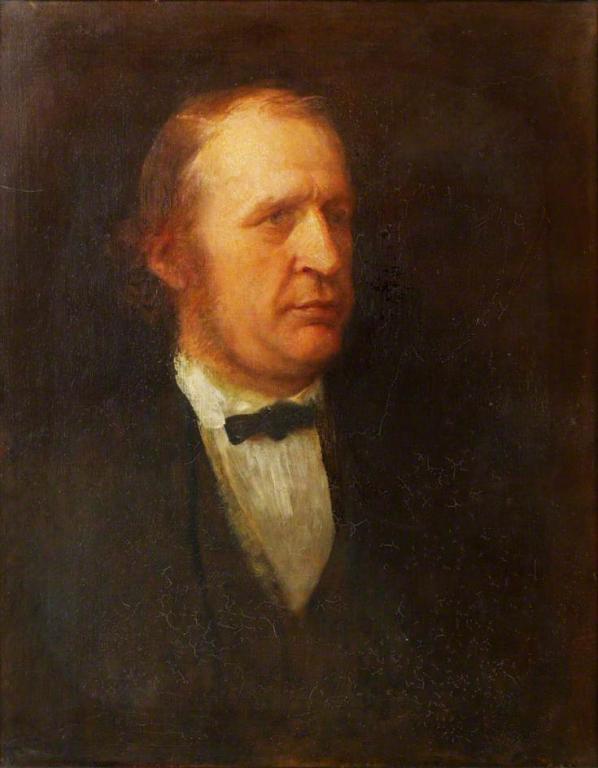
***
Two new items from the astoundingly prolific Jeffrey Mark Bradshaw went up today on the website of the Interpreter Foundation:
Old Testament Commentary: Genesis 11 Overview: The Tower of Babel
Old Testament Commentary: Genesis 12-17: The Covenant of Abraham
***
And this is worthy of mentioning here, too:
“LDS Film Festival Announces Lineup and New Vision”
Don’t forget that the Interpreter Foundation’s new docudrama, Undaunted: Witnesses of the Book of Mormon, will have its first public showing at the Festival. That will occur on Friday evening, 4 March.
***
***
I’m still slowly working my way through prior entries on my blog. Here are a quintet of quotations that I found and that I think merit being shared yet again:
The first three fit very closely together, and they are very much in the spirit of a conference that I would one day love to convene. The theme would be “science and religion,” but it would be about neither defending religion from supposed challenges of science nor about using scientific arguments to buttress religious claims (though both of those are valuable things to do). Instead, it would be about the practice of science as itself a spiritual act and an inspiration.
“But the context of religion is a great background for doing science. In the words of Psalm 19, ‘The heavens declare the glory of God and the firmament showeth his handiwork.’ Thus scientific research is a worshipful act, in that it reveals more of the wonders of God’s creation.” (Arthur Leonard Schawlow, Stanford University; 1981 Nobel laureate in physics)
“I have found there is a wonderful harmony in the complementary truths of science and faith. The God of the Bible is also the God of the genome. God can be found in the cathedral or in the laboratory. By investigating God’s majestic and awesome creation, science can actually be a means of worship.” (Francis Collins, M.D., Ph.D., former leader of the Human Genome Project and recently retired director of the National Institutes of Health)
“The Christian faith allows us to see further and deeper, to appreciate that nature is studded with signs, radiant with reminders, and emblazoned with symbols of God, our creator and redeemer.” (Formerly an atheist, Alister McGrath currently holds the Andreas Idreos Professorship in Science and Religion in the Faculty of Theology and Religion at the University of Oxford. He earned three doctorates at Oxford — a D.Phil. in molecular biophysics, a D.D. (Doctor of Divinity) in theology, and a D.Litt (Doctor of Letters) in intellectual history.)
At the conclusion of his classic essay “The Will to Believe,” the famed Harvard philosopher and psychologist William James (1842-1910) cites the English writer, lawyer, and judge Fitzjames Stephen, from that author’s Liberty, Equality, Fraternity, 2nd ed. (London, 1874), 353. It’s a nice summary of the position in which humans find themselves with regard to secular public arguments for and against religious faith:
“What do you think of yourself? What do you think of the world? . . . These are questions with which all must deal as it seems good to them. They are riddles of the Sphinx, and in some way or other we must deal with them. . . . In all important transactions of life we have to take a leap in the dark. . . . If wc decide to leave the riddles unanswered, that is a choice; if we waver in our answer, that, too, is a choice: but whatever choice we make, we make it at our peril. If a man chooses to turn his back altogether on God and the future, no one can prevent him; no one can show beyond reasonable doubt that he is mistaken. If a man thinks otherwise and acts as he thinks, I do not see that any one can prove that he is mistaken. Each must act as he thinks best; and if he is wrong, so much the worse for him. We stand on a mountain pass in the midst of whirling snow and blinding mist through which we get glimpses now and then of paths which may be deceptive. If we stand still we shall be frozen to death. If we take the wrong road we shall be dashed to pieces. We do not certainly know whether there is any right one. What must we do? “Be strong and of a good courage.” Act for the best, hope for the best, and take what comes. . . . If death ends all, we cannot meet death better.”
One might, I suppose, consider it a case of what’s called “decision-making under conditions of uncertainty.”
Here’s another quotation that I found while going through past blog entries. It comes from William D. Phillips, who won the 1997 Nobel Prize in Physics for his contributions to “laser cooling,” a technique that is used to slow the movement of gaseous atoms in order to better study them:
While . . . media attention goes to the strident atheists who claim religion is foolish superstition, and to the equally clamorous religious creationists who deny the clear evidence for cosmic and biological evolution, a majority of the people I know have no difficulty accepting scientific knowledge and holding to religious faith. . . .
Why do I believe in God? As a physicist, I look at nature from a particular perspective. I see an orderly, beautiful universe in which nearly all physical phenomena can be understood from a few simple mathematical equations. I see a universe that, had it been constructed slightly differently, would never have given birth to stars and planets, let alone bacteria and people. And there is no good scientific reason for why the universe should not have been different.
Many good scientists have concluded from these observations that an intelligent God must have chosen to create the universe with such beautiful, simple, and life-giving properties. Many other equally good scientists are nevertheless atheists. Both conclusions are positions of faith. . . . I find these arguments suggestive and supportive of belief in God, but not conclusive. I believe in God because I can feel God’s presence in my life, because I can see the evidence of God’s goodness in the world, because I believe in Love and because I believe that God is Love.
Posted from Ko Olina, Oahu, Hawaii




